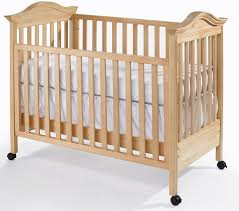记忆方法
1. 谐音“可内蹦、床内蹦、床内吧、床内簸”----可以在里面、内部蹦跳的蹦床。
2. c- (拼音“箍”) + rib => 四周用肋骨箍紧、箍住。
3. brick => bric => crib(首尾字母倒置): 用砖砌成的小屋,小房间.
4. 入室偷窃、剽窃(引申义).
5. 谐音“框内吧、框内板、框柳板、箍肋吧、箍内吧、槽内吧、仓内吧、池内吧”。
2. c- (拼音“箍”) + rib => 四周用肋骨箍紧、箍住。
3. brick => bric => crib(首尾字母倒置): 用砖砌成的小屋,小房间.
4. 入室偷窃、剽窃(引申义).
5. 谐音“框内吧、框内板、框柳板、箍肋吧、箍内吧、槽内吧、仓内吧、池内吧”。
中文词源
crib 幼儿床,饲料槽,抄袭
来自PIE*sker, 转,弯,编织,词源cradle。原义为篮子,摇篮,后由篮子过渡到饲料槽。抄袭义来自学生俚语。
英语词源
- crib
-
crib: [OE] Crib is a Germanic word, with relatives today in German (krippe) and Dutch (kribbe). In Old English it meant ‘manger’, and not until the 17th century did it develop its familiar presentday sense ‘child’s bed’. An intermediate stage, now lost, was ‘basket’, which appears to have given rise to its 18th-century use as a thieves’ slang term for ‘pilfer’; this in turn is probably the source of the modern colloquial sense ‘plagiarize’. Vulgar Latin borrowed Old High German kripja as *creppia, from which modern French gets crèche (acquired by English in the 19th century).
=> creche - crib (n.)
- Old English cribbe "manger, fodder bin in cowsheds and fields," from a West Germanic root (cognates: Old Saxon kribbia "manger;" Old Frisian and Middle Dutch kribbe; Old High German krippa, German Krippe "crib, manger") probably related to German krebe "basket." Meaning "child's bed with barred sides" is 1640s; probably from frequent use in reference to the manger where infant Jesus was laid. Thieves' slang for "dwelling house" dates to at least 1812, but late 20c. use probably is independent. The Old High German version passed to French and became creche.
- crib (v.)
- "steal," 17c. from crib (n.) in a secondary sense "a basket;" this probably also is the source of student slang meaning "plagiarize" (1778). Related: Cribbed; cribbing.
权威例句
- 1. So cuddly. The beautiful crib from Mom and Dad.
- 抱起来真舒服. 爸爸妈妈送的漂亮婴儿床.
- 2. She tucked the baby in his crib for a nap.
- 她把婴儿裹好放在童床里小睡一会儿.
- 3. We curtained off part of the room and put the crib there.
- 我们用帘子遮掉房间的一部分,把小人床放在那儿.
- 4. The teacher vetoed the use of a crib.
- 那位老师严禁使用夹带.
- 5. It hung over Susan's crib.
- Susan的小床也曾有过.

